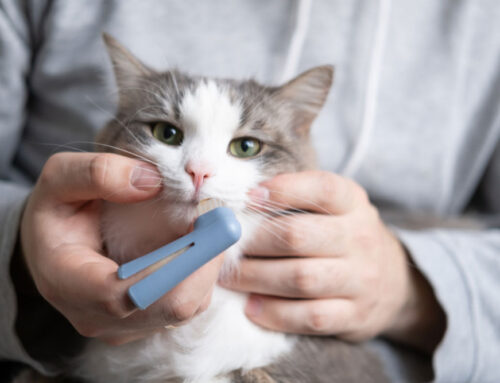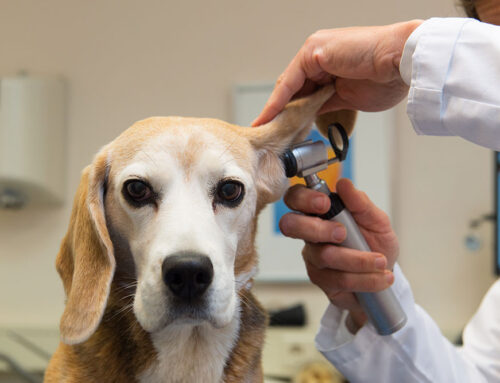In South Florida most pet owners are concerned about fleas and ticks. “How does my dog get them?” “What are the signs of flea infestation?” and “What are the associated risks?” are several of the questions that owners often ask. These concerns are justified, especially here in South Florida because fleas and ticks can thrive year round.
First, dogs and cats get fleas from any other flea-infested animal – a dog, cat, or wildlife, like opossums and raccoons. This animal goes through the neighborhood or yard and eggs from the female fleas on their coat rained down into the environment. One adult female can lay up to 50 eggs in a day which hatch and reproduce exponentially. When those eggs develop into adults fleas, they latched onto a new host when they are out in the backyard or walking the neighborhood. They can also cling to a shoe or pant-leg and be carried into the house.
Dogs generally get ticks when they are out in the tick’s environment-walking through the woods or high grass. Ticks will crawl up on low shrubs or grass, generally 18-24 inches off the ground, and wait for a host to walk by and brush up against them. They hitch a ride and get a blood meal so they can lay thousands of eggs.
Fleas and ticks are a significant problem because they multiply rapidly and they can cause illnesses in our pets. When fleas are feeding, they’re injecting saliva into the skin. These salivary proteins can cause allergic reactions which cause itching and inflammation which results in hair loss and severe scratching and biting. One of the most common skin diseases of dogs and cats is flea allergy dermatitis. It can take only a few fleas for this allergy to become a problem. Many dogs and cats do not have an allergy to fleas, so people believe that only the animals scratching have fleas. Because fleas are blood-sucking insect, pets can become anemic and even die with heavy infestations especiaaly young animals and sick animals. Fleas can also commonly transmit tapeworms to our pets.
There are many tick-transmitted diseases that infect our pets including Lyme disease, Rocky Mountain spotted fever, tularemia, ehrlichiosis, and more. Many of these diseases can kill pets.
In South Florida, dogs and cats need flea preventative year round. There are many good products that only have to be used once a month that are either applied to the skin or given orally. Many products not only protect against fleas and ticks but also against intestinal parasites and heartworms. One heartworm prevention also prevents flea egg from hatching. Over-the-counter flea control products are not as safe and effective as the prescription products you obtain from your veterinarian. Some are even toxic, especially if given incorrectly.
It is also important that all pets in the house receive protection, especially cats and even guinea pigs. Some pets are more sensitive to fleas than others, so if only the scratching dog is treated, it’s likely that he will be reinfested by other pets in the house that also have fleas but aren’t scratching and biting.
Products that prevent the fleas eggs from hatching out go a long way in controlling fleas (95% of fleas in the environment are eggs, larvae, and pupae which these products prevent from turning into adult fleas.) If you cannot control these fleas with professional products from your veterinarian, then environmental control of areas your pet habitats especially where they lie down is needed. This includes foggers, sprays, cleaning of bedding and carpets and possible professional exterminators. If they are outside much, then outside treatment is needed.
Ticks are a special case. As soon as you see any ticks, a good long term insecticide for you pet is needed. If you keep seeing ticks then treating the animal and the environment is needed. The environment should be treated at least two times by a professional.
Ridding your pet and their environment of these pests is a tough job, but it’s easier knowing that your pet doesn’t have to endure the maddening itching and scratching or the insidious diseases these parasites can inflict. Talk to your veterinarian about good flea and tick products.
Established in 1981, Palm City Animal Medical Center is dedicated to providing the best possible care for your pets. With focuses on compassionate care in surgery, physical therapy and rehabilitation, preventative medicine, extensive diagnostics, and emergency service, Palm City Animal Medical Center combines exceptional medical care with a caring philosophy for pets and their owners. For more information, call 772-283-0920, visit www.palmcityanimalmedicalcenter.com or find us on Facebook at www.facebook.com/PalmCityAnimalClinic.








Leave A Comment